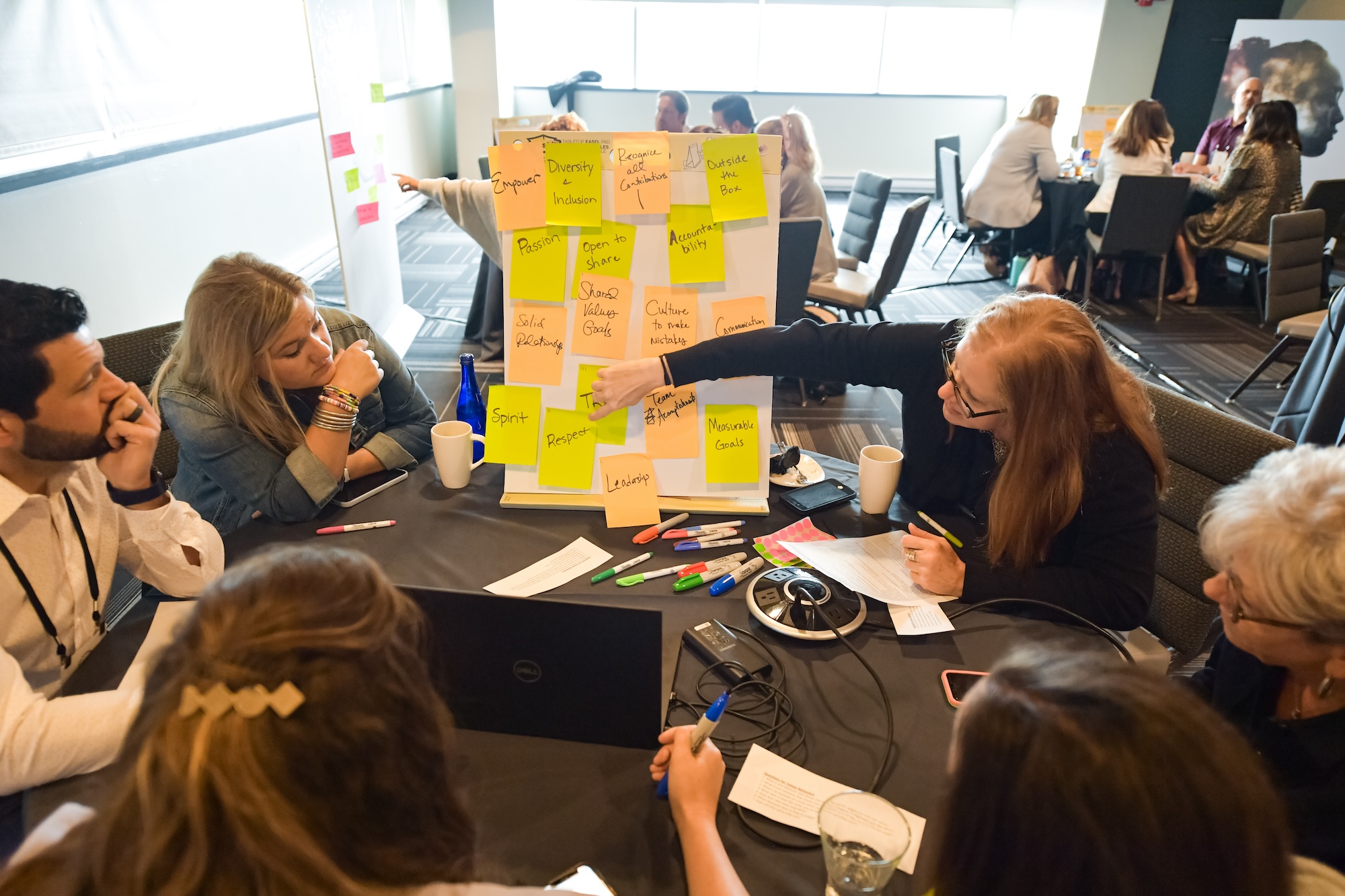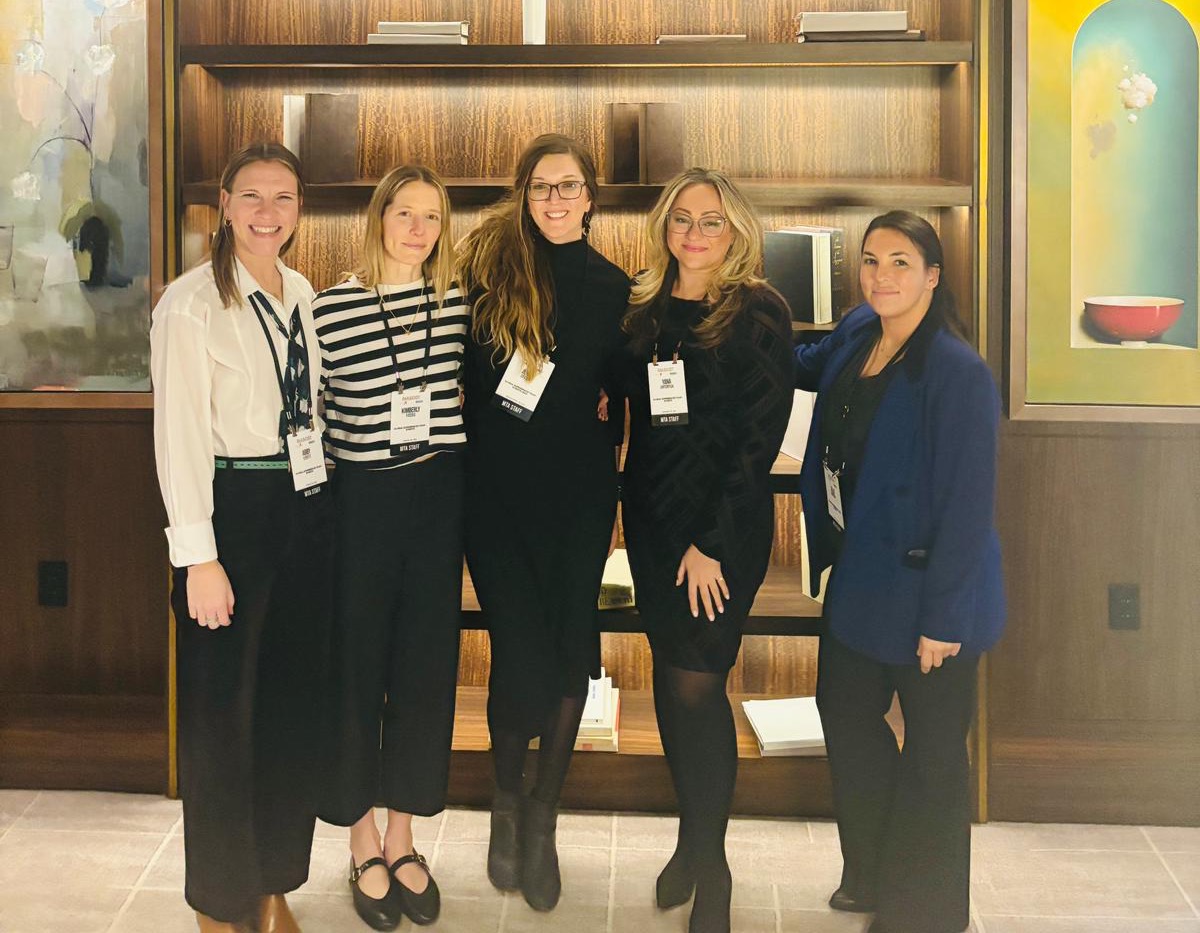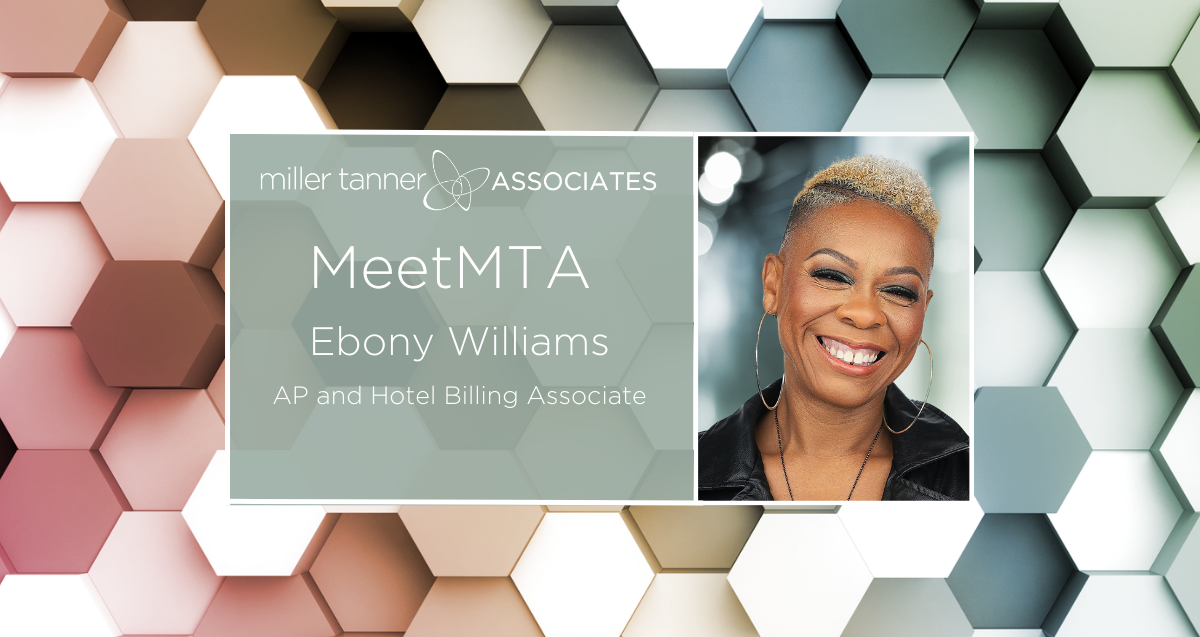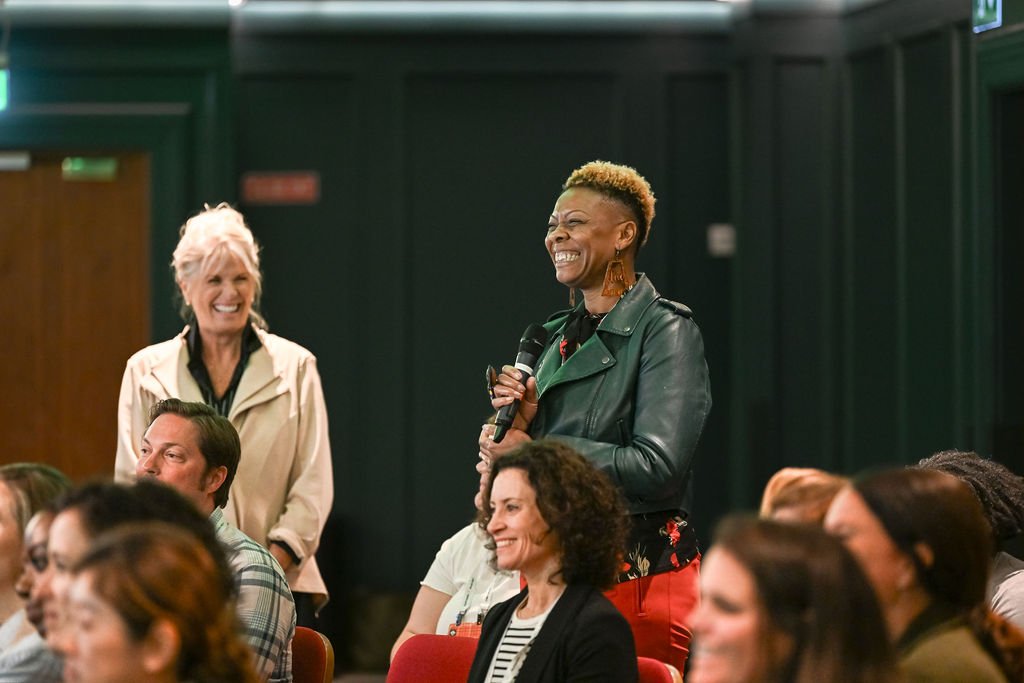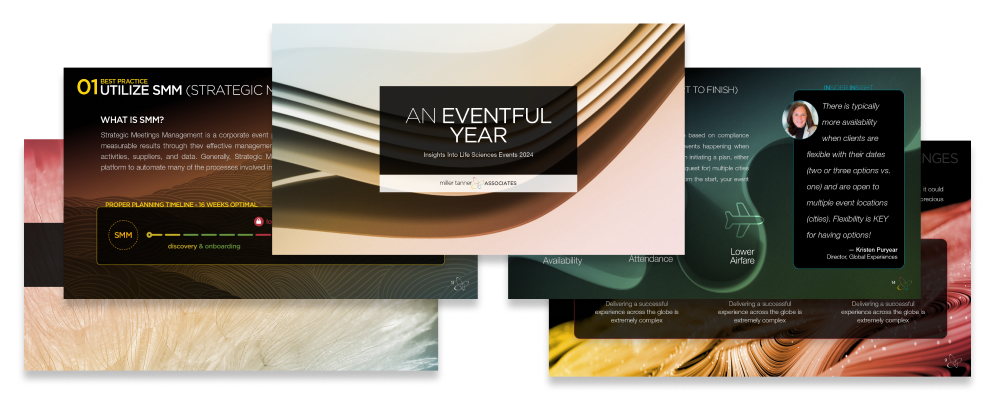Interactive activities and team-building exercises foster stronger connections at work. With simple exercises, you can increase trust between teams and departments, help strengthen interpersonal relationships, and boost your reputation as an employer with a good company culture. Whether you’re hosting a corporate event or you want to have team-building events scheduled frequently during the workday, having a collection of different team-building experiences and team-building outings to choose from makes it easier to implement these sessions.
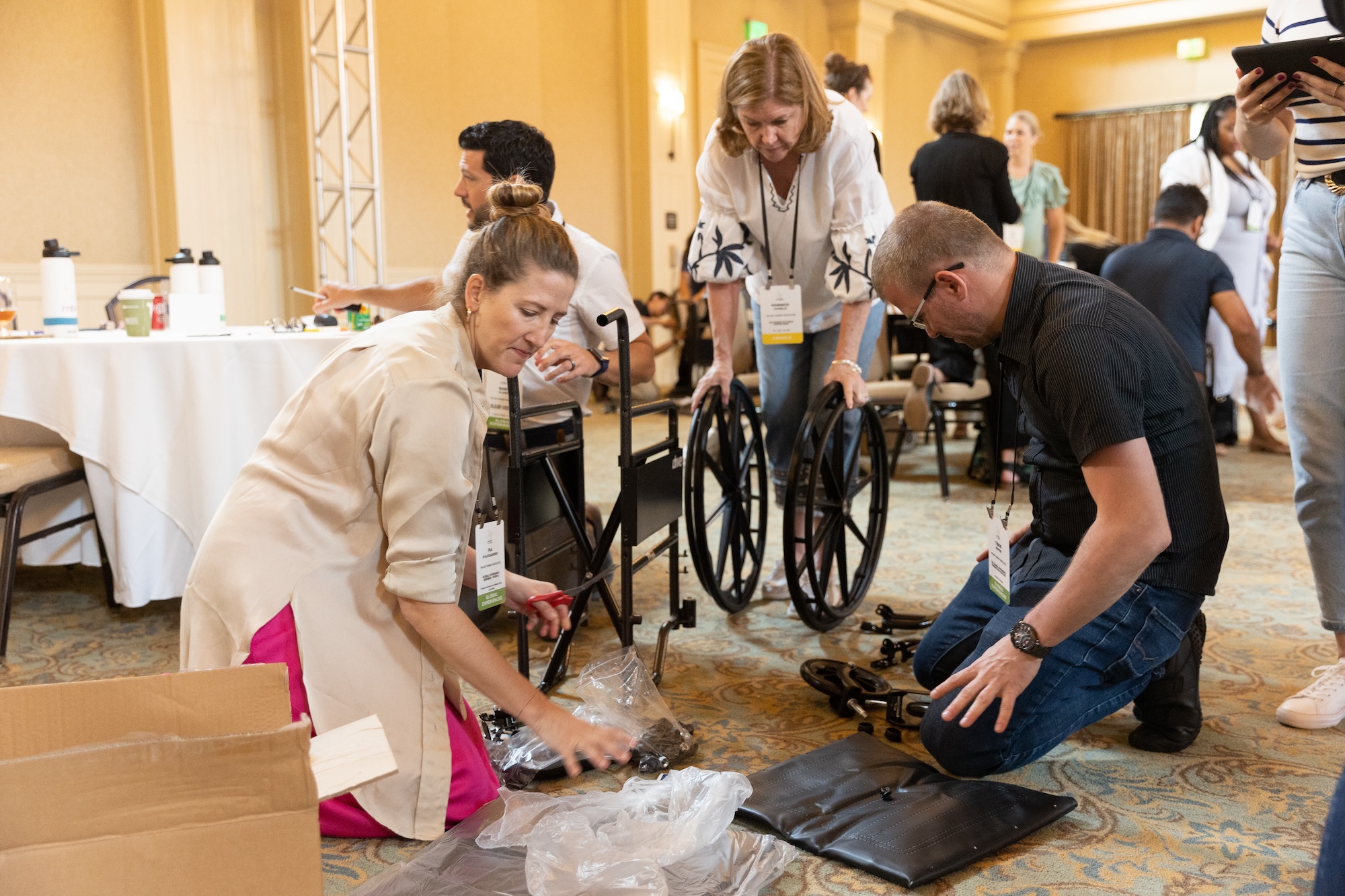
Collaborative Workshops: Building Skills Together
Workshops are excellent opportunities to help your employees gain access to new skills and knowledge sets. While solo learning opportunities can provide a lot of value, collaborative workshops are even better. They give your employees the following benefits:
- Learning sessions during the workday, which create a better work-life balance
- Time to talk with coworkers, especially coworkers they may not regularly interact with, which forms better networks and creates stronger connections
- Opportunities to ask questions, clarify information, and come to a common understanding that prevents potential miscommunication later
All of these benefits create downstream wins for both employees and the company as a whole.
Icebreaker Activities: Breaking Down Barriers
Many work environments suffer from silos. Some silos are caused by work in virtual environments, where parties simply don’t interact beyond emails. Other silos are traditional barriers between departments that have adversarial relationships. Other barriers that may be in your workforce include feelings of isolation for new hires. Icebreaker activities can go a long way in breaking down these barriers.
First, team-building experiences that break the ice foster interaction outside strict work-related topics. People can learn about each other’s hobbies, interests, and personalities. Shared experiences and preferences can foster work friendships and make people in different departments more approachable. As a result, employees may feel more comfortable giving feedback, asking questions, and approaching different stakeholders. When employees feel more connected, they stay with the company longer and can get more done than employees who feel isolated and unsupported.
Charity Events: Unified Purpose, Stronger Bonds
Team-bonding events around charitable activities are a great way to achieve many different team-building and company-wide goals. They create a sense of unified purpose that participants can feel good about, whether it’s volunteering together at a local non-profit, participating in a charitable run, or donating blood. Participants can share a sense of pride and fulfillment, and they’ll remember which coworkers they worked with.
Charity events also provide a work-adjacent context for interacting and building relationships without the frustrations and pressures of work. When team-building events are separated from deadlines, ongoing problems, and stressful projects, people can get to know each other without trying to solve a problem or get something off their plate.
Charity team-building events also provide direct benefits for the organization. You can associate your brand with local non-profits or niche projects that support your values and company mission. Organizing these charity-related team-building outings during the workday also strengthens your reputation as an employer who provides opportunities without cutting into your team’s personal time.
Contact Miller Tanner Associates to Learn More About Team-Building Events to Help Boost Morale
Team-building events make your company stronger and give your employees more fulfillment. Whether you have icebreakers at the start of monthly meetings, interactive workshops during quarterly corporate events, or a big annual charity outing, you can bring your teams together. Miller Tanner Associates is here to help. Contact us today about how our team can organize corporate team-building events for your company.
